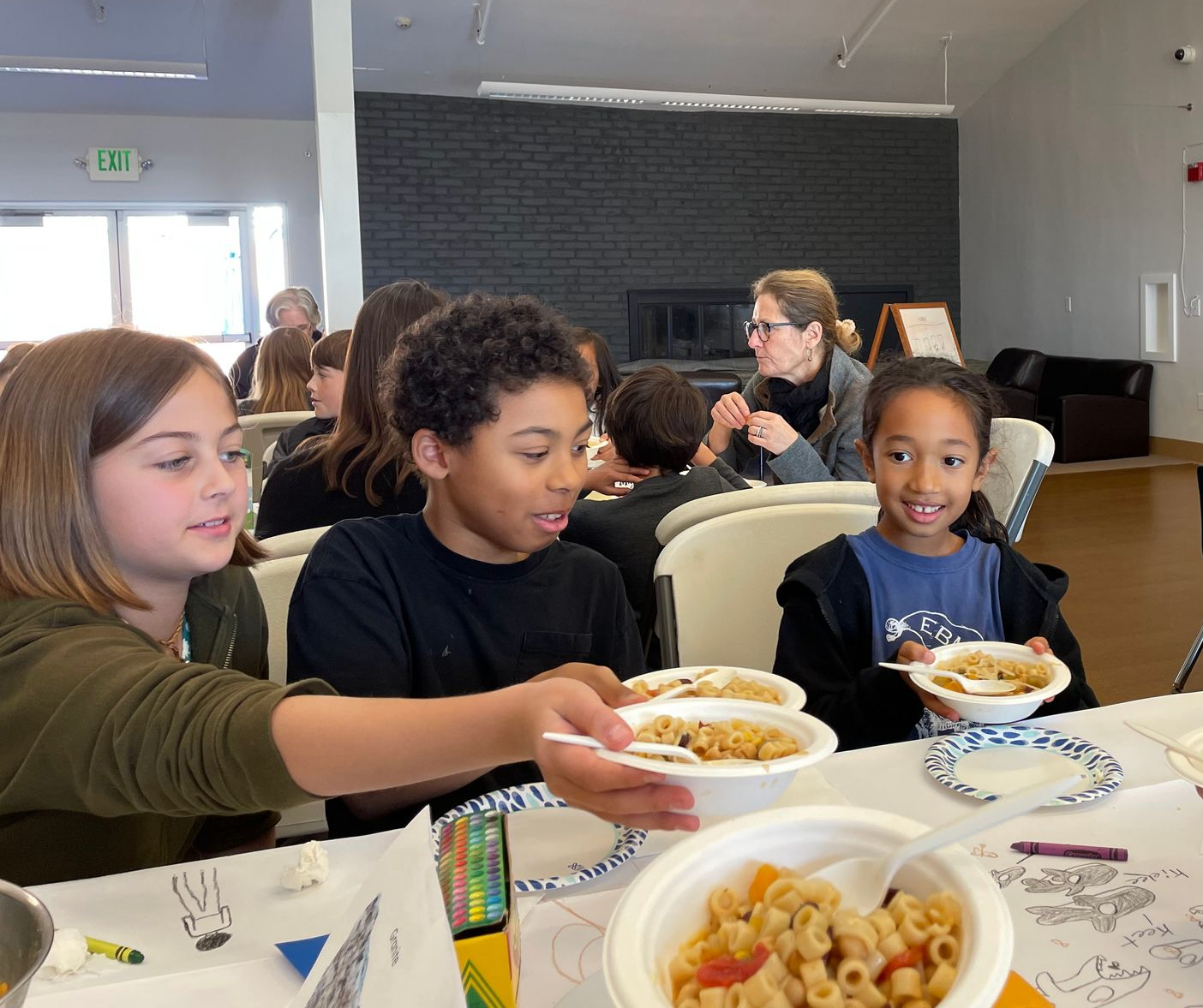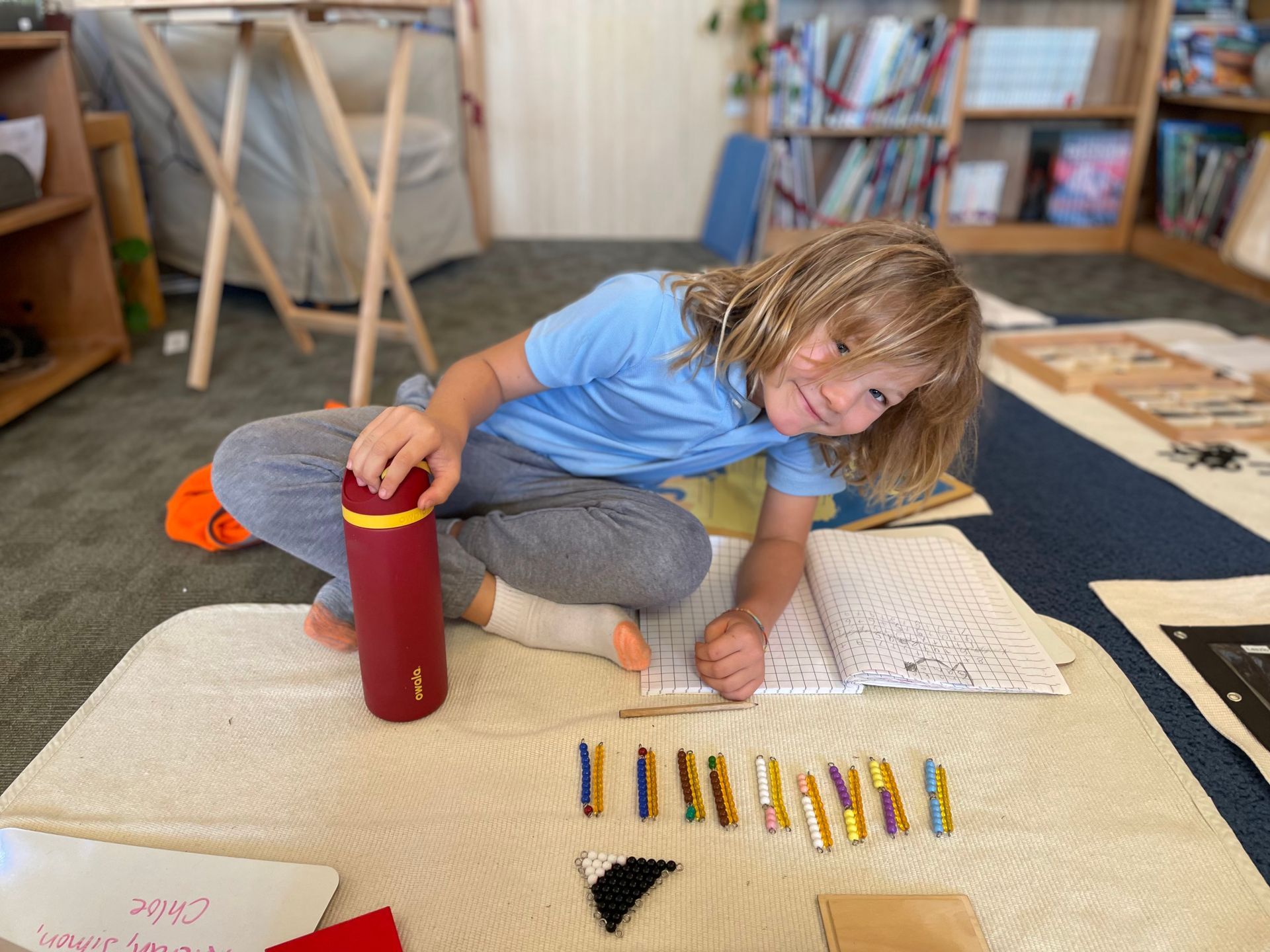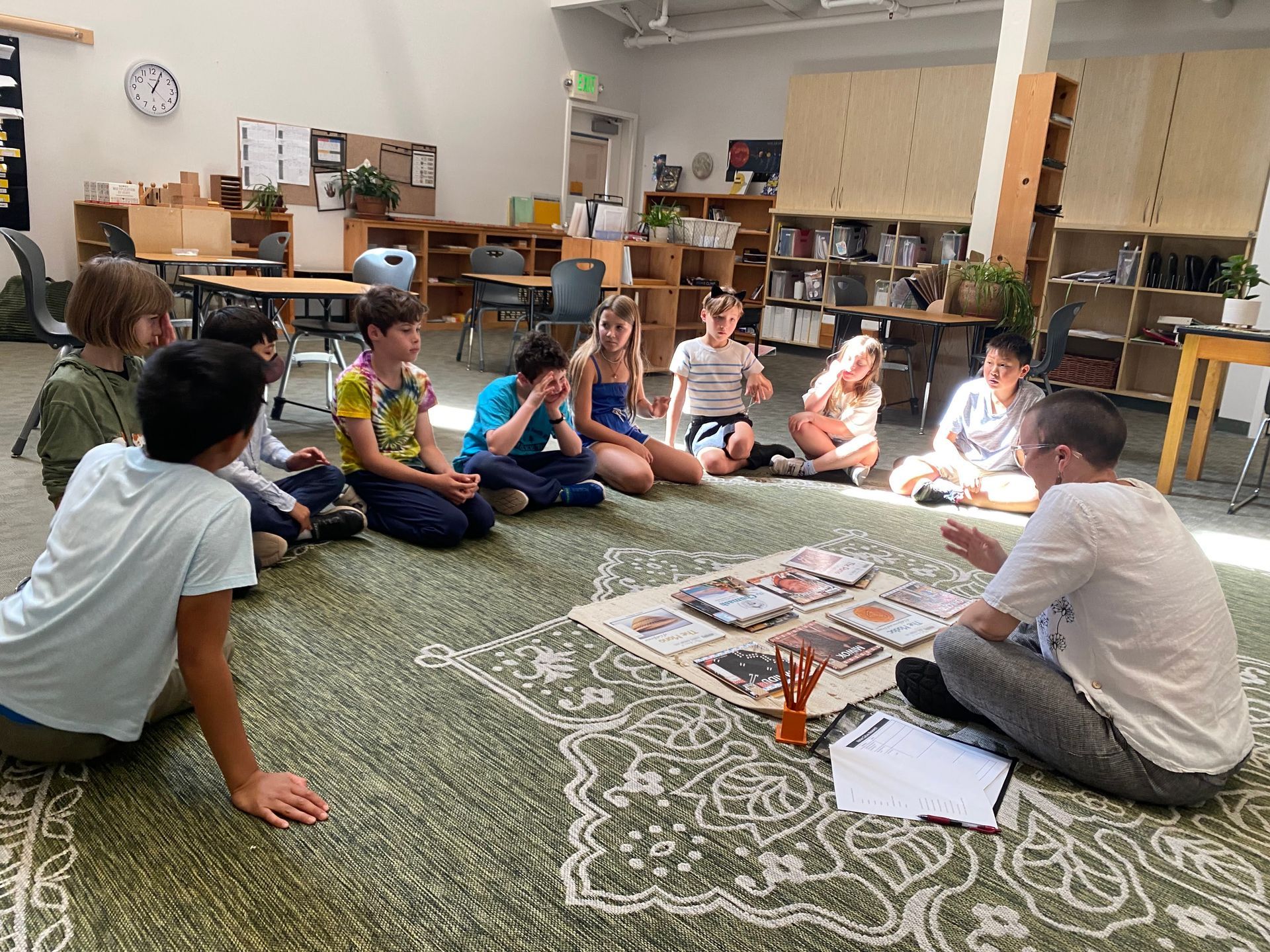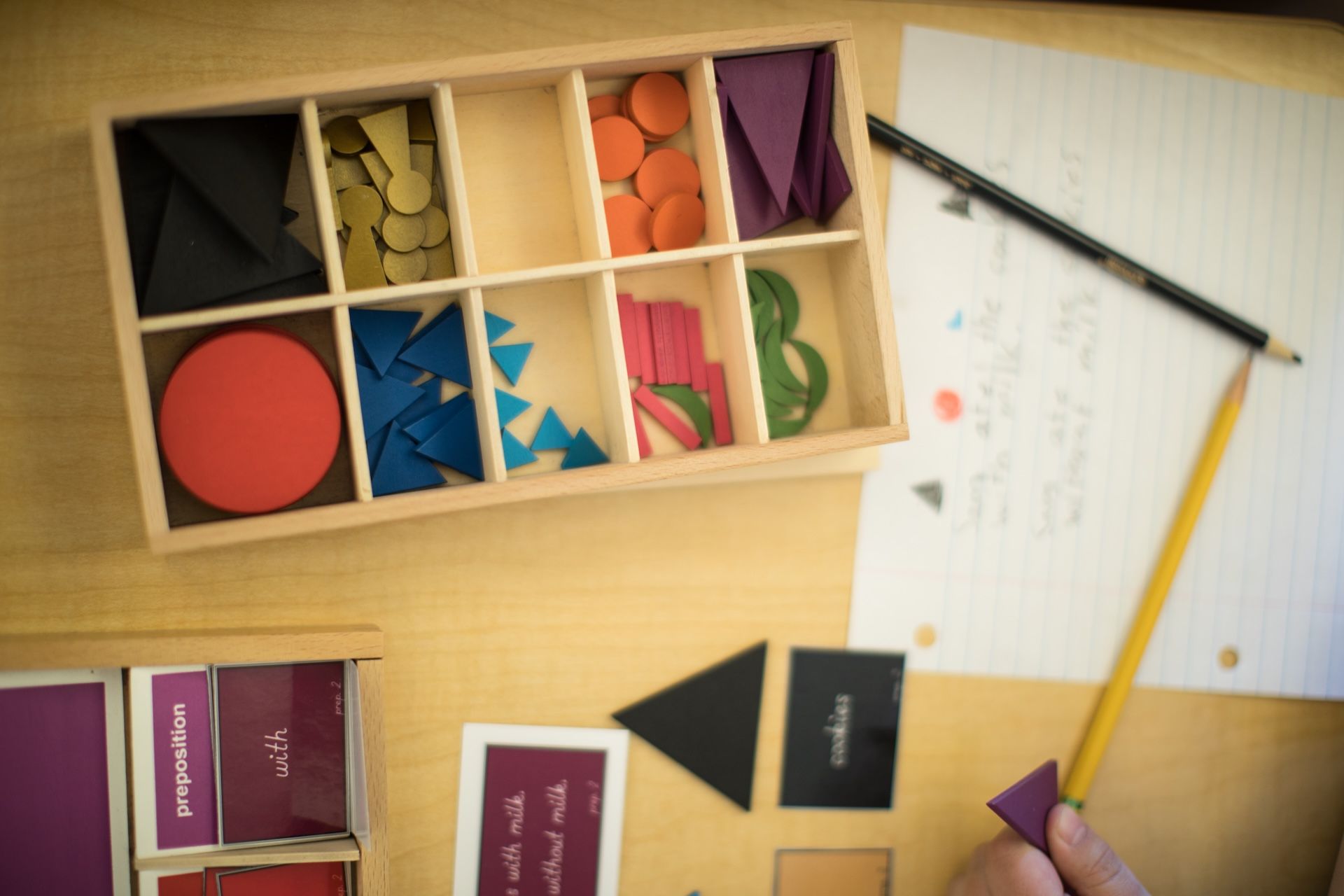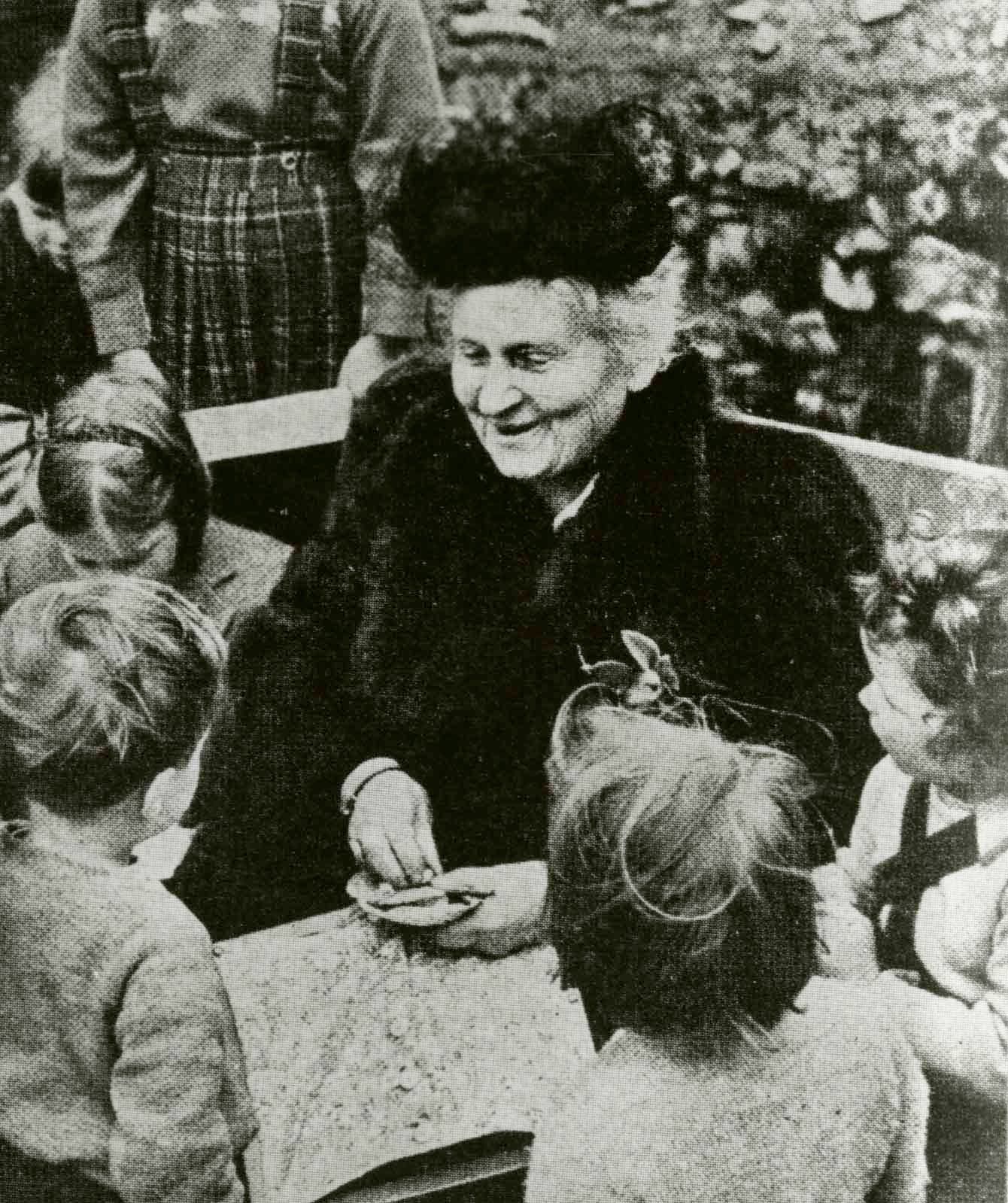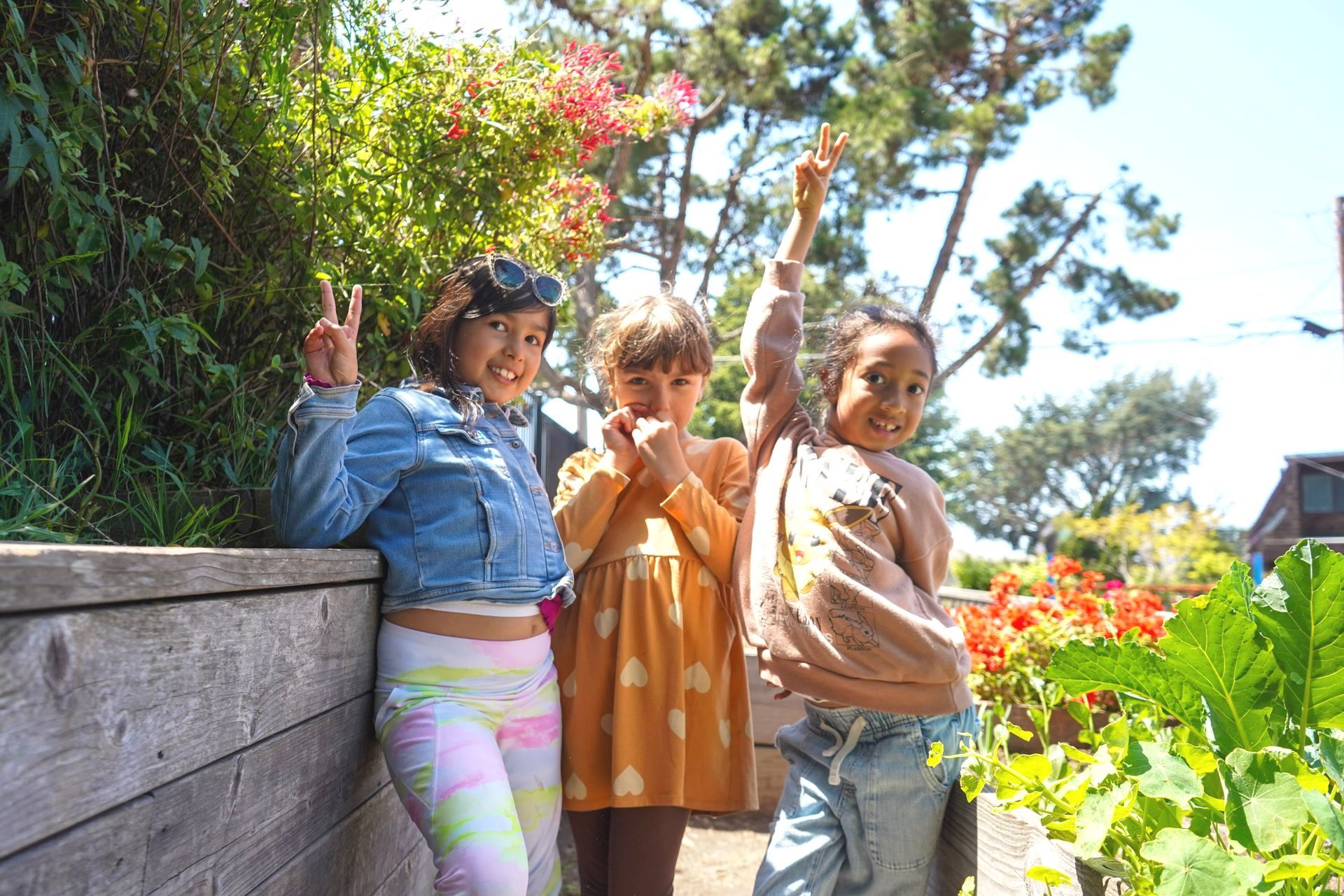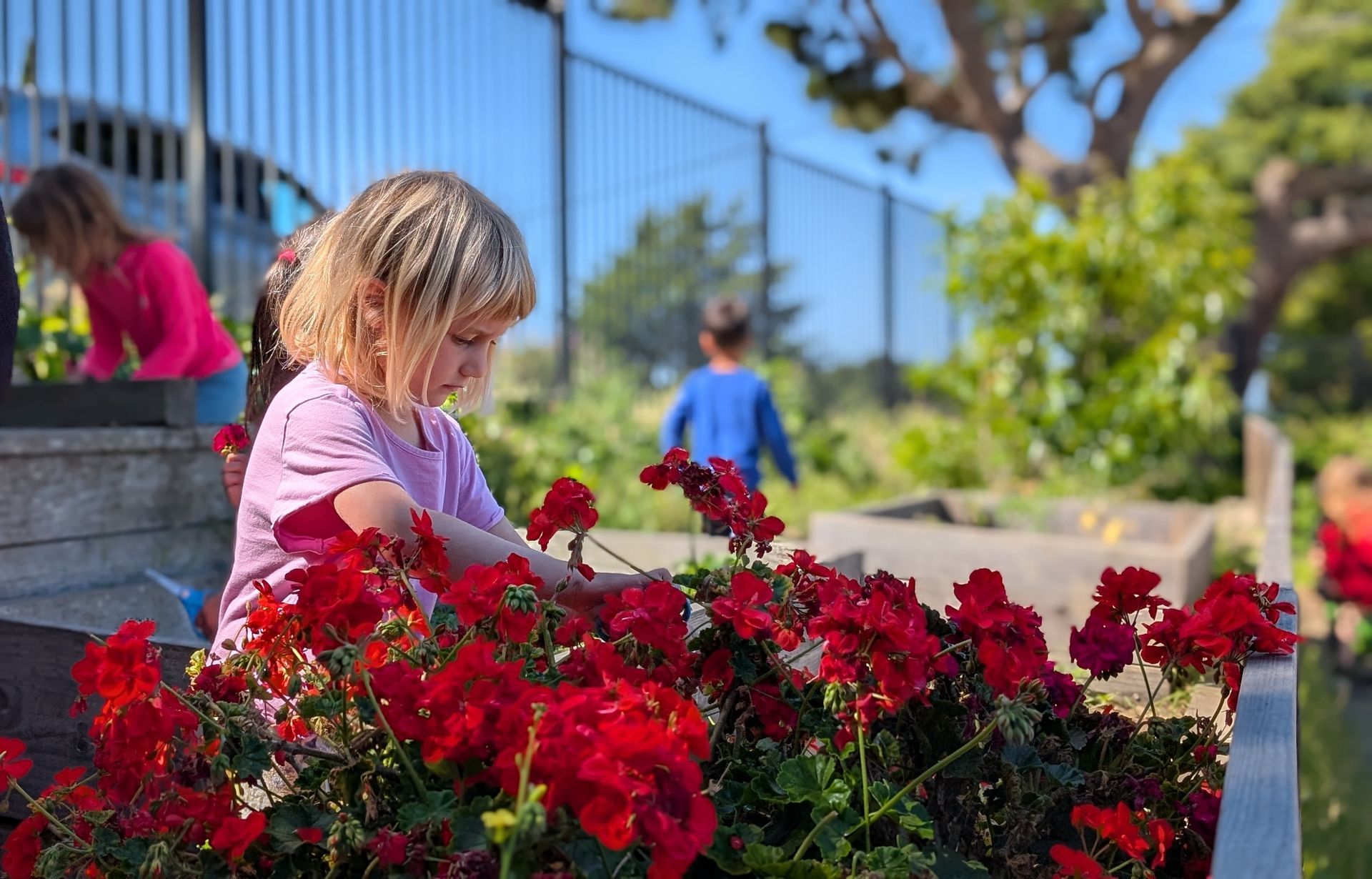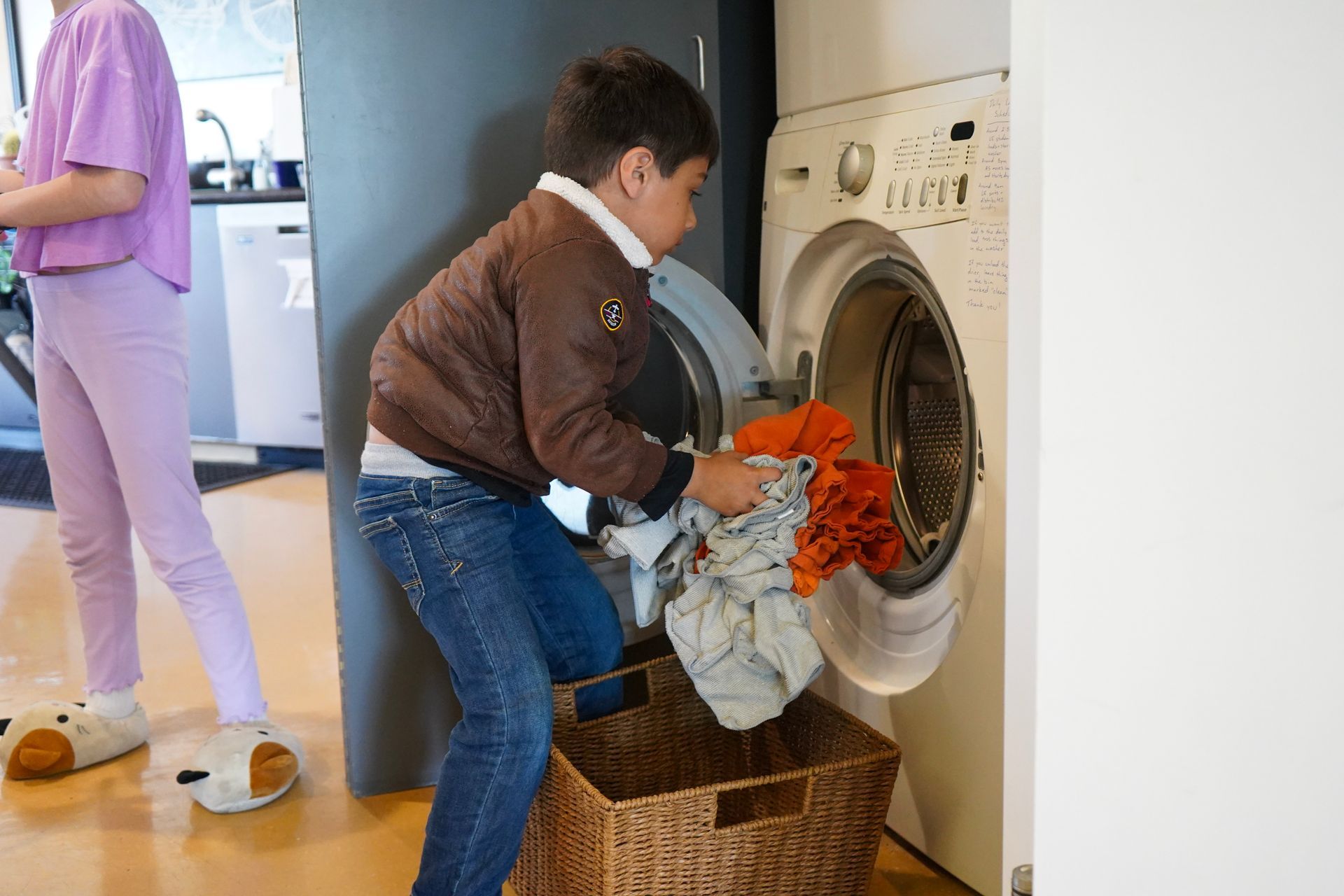Social Benefits of the Elementary Years
The Positive Impact of Montessori Education in Older Years
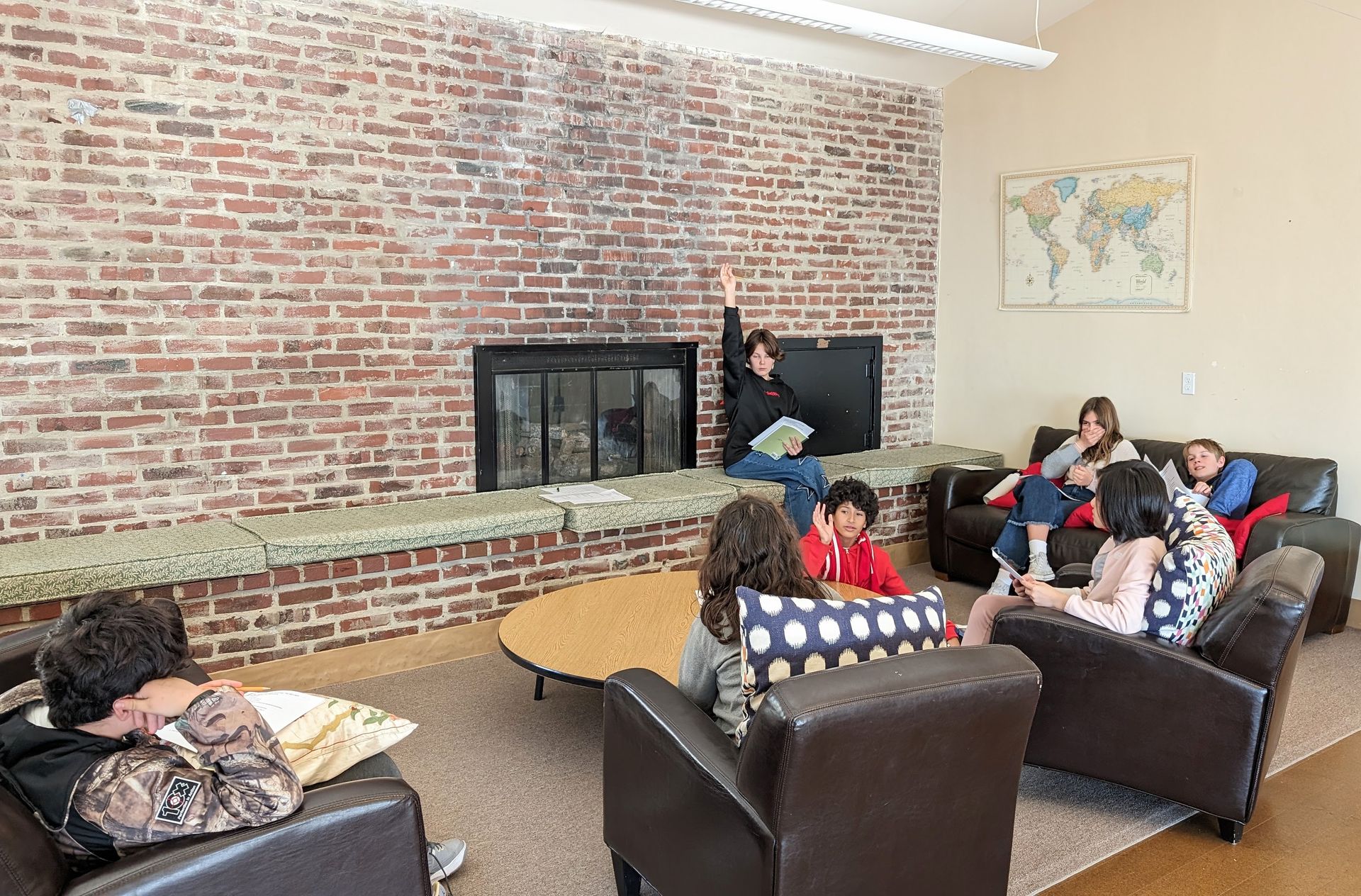
It is easy to focus on the academic benefits of Montessori education. In fact, an August 2023 meta-analysis of 32 studies highlights how students in Montessori programs, in comparison to students in traditional schools, show higher performance in language, math, general academic ability, and executive functioning. Clearly, the Montessori method has a powerful impact on student performance. Academic vigor, though, isn’t the only thing that matters in our children’s lives.
The social-emotional benefits of a Montessori education are also incredibly significant. This is especially apparent at the elementary level when children are figuring out who they are as social beings. The near-peer learning in mixed-age Montessori elementary programs helps our young people develop their collaboration strategies, problem-solving skills, and conflict-resolution techniques. Plus, Montessori environments support what our children are going through developmentally. We are working with human nature, rather than against the strong forces that drive our young people.
Collaboration
At the elementary age, it is all about the “we” because children of this age have a strong gregarious nature. They want to do things together and thus group work is an integral part of Montessori elementary classrooms. In the process of working together on projects, elementary students practice important communication skills and learn how to lift each other up in their group work. We want elementary children to know that collaboration will take us further than competition, so we help children learn how to cheer each other on in supportive ways.
As they develop these collaborative skills, each individual comes to recognize not only the power of the group, but also what it means to belong to a group in a meaningful way. As children experience themselves as part of a group they are engaged in important social construction.
Practice Society
This social construction can be seen as the way that elementary-age children begin to practice what it means to create societal structures. In Montessori, we sometimes think about elementary communities as “practice societies”.
It is “practice” because children are engaging in something they haven’t already mastered, which means they aren’t going to be good at it at first! We recognize that children need to work at creating their “practice society” and there will be gradual improvement. This also means that there will be mistakes, including conflict and hurt feelings. In Montessori communities, we have the time and space to support children as they work through this process. We value the importance of this social development!
The word “society” comes from the Latin root for companion. Thus, being in society implies having friendly associations with others. We want elementary children to find joy in associating with each other. During the elementary years, children benefit from real jobs that contribute to their community and begin to appreciate how to make sure everyone gets their needs met collaboratively. So, we support children in this work of forming a society based on joint cooperative work in a positive, productive environment.
Building & Solidifying Skills
In the process of working with peers of varying ages, children make connections with different types of people and realize that learning can happen from those who are both older and younger! Through connection and conversation, children practice their patience, listening skills, and communication strategies. As classmates engage collaboratively on both projects and classroom responsibilities, they learn how to work toward one goal, lean into each other’s strengths, prioritize tasks, and organize their time. Part of this happens because in mixed-age elementary classrooms, students don’t have the stress of comparing themselves to peers of the same age. They have space and time to develop their skills, collaborate based on interests, and practice what they have recently mastered.
We see much of this social and emotional growth in how Montessori children interact with people both in school and out in the broader community. Because they have had the experience of adults as partners and allies, we see that Montessori graduates know how to seek help, ask questions, and generally converse with people of all ages.

